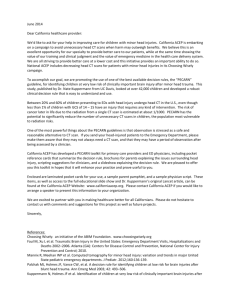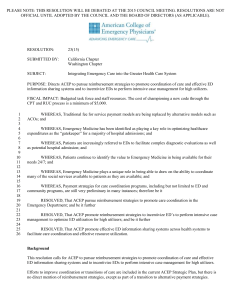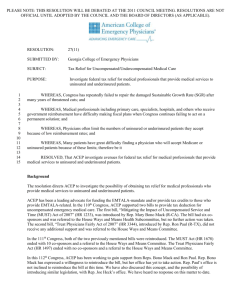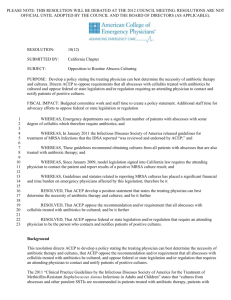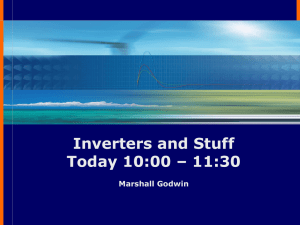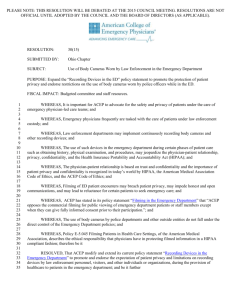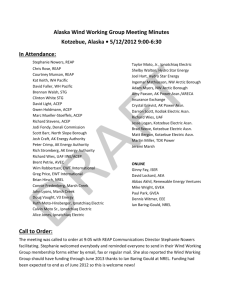Overview
advertisement
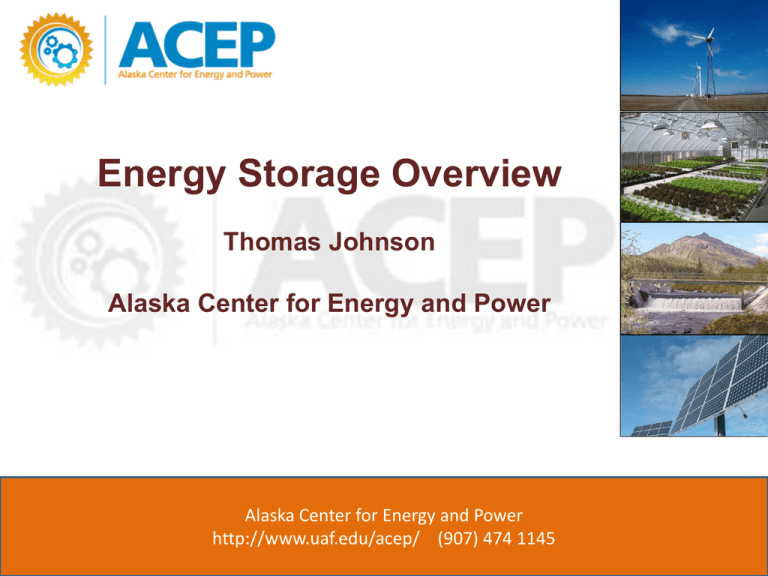
Energy Storage Overview Thomas Johnson Alaska Center for Energy and Power ACEP Alaska Center for Energy and Power http://www.uaf.edu/acep/ (907) 474 1145 (907) 474 1143 www.uaf.edu/acep Overview • • • • Why? Types of storage ACEP flow battery experiences Energy storage in Alaska Why Storage and Why Now? • • • • • Balance supply and demand Load leveling Load shifting UPS – Uninterruptible Power Supply Potential to save fuel and $$$ Types of Storage • Potential – Elevation difference – Electrochemical – Super capacitors – Chemical – Magnetic – Mechanical • Kinetic • Thermal Fossil Fuel & Biomass Hydrogen • Yes, hydrogen can be used for energy storage • In most applications there are better alternatives Compressed Gas Hydroelectric • Reservoir storage • Energy = mgh • Pumped hydroelectric ~70% efficient Needs the right circumstances Elevation change Super Capacitors • • • • • “Battery”-like characteristics Extremely rapid charge and discharge Virtually no degradation High self-discharge rate Not suitable for long term storage Flywheels • • • • • • Kinetic energy storage Energy=1/2 mv2 Changed from heavy rotors to fast rotors Turn around efficiency up to 85% Short-term storage Containment? Batteries • • • • Electrochemical storage Can be efficient The technology is rapidly improving Most types degrade Other • • • • Liquid metal battery Magnetic storage Thermal storage And… Flow Batteries at ACEP Flow Batteries at ACEP • • • • • • • Vanadium redox batteries VRB and Prudent Energy Turn around efficiency 65%-75% Very low degradation High self-discharge rate The “stack” was reliable The VRB balance of plant was not Pumps Leaks Storage in Alaska • Installations throughout the state • Various levels of success • Or lack thereof… • A few examples: Usibelli Coal Mine • Electrically-operated dragline • 6 MW draw, 2 MW regeneration, 60 second cycle time • Caused grid stability problems • 40 ton, 1000 rpm Flywheel was installed and reduced the fluctuations from 8MW to .5 MW • Installed in 1982 and still in use Chena Hot Springs Batteries • • • • • 1 MW Battery module intended as a UPS Lead acid chemistry Not suitable for load leveling Never commissioned… Premium Power Battery • • • • 500 kW, 3.4 MWhr Delivered to Kotzebue in October 2011 Zinc-Bromide chemistry Intended to provide storage during times of excess wind. • Never commissioned • Being returned to the manufacturer… Wales • Wind-diesel hybrid system • Battery and thermal storage enabled diesel-off operation • System proved it could work • For a variety of reasons, the system is no longer used and Wales is once again 100% diesel Golden Valley BESS • • • • • Largest battery in the world Nickel-Cadmium chemistry 27 MW 6.25 MWh capacity Electrical Energy equivalent to ~400 gallons of fuel • It works Questions? For more information on the Alaska Center for Energy and Power, please visit http://www.uaf.edu/acep/ Or call (907) 474-1145 Alaska Center for Energy and Power http://www.uaf.edu/acep/ (907) 474-1145



